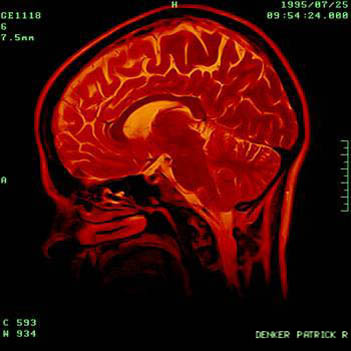Who you callin’ a MOOC?!
My first job out of college was at a classical record store. It was one of the best record stores in the city–hands down. That includes rock stores. By standards of stock, we were unmatched. The store manager was a composer who had studied with Maxwell Davies and the assistant manager was a mean fiddle and bouzouki player who recruited me into his celtic rock band, The Hooligans. We had fun. The store had some basic tenets. We were open every day from 9am until midnight. No matter what. We had–in stock–every record in print and often several records that were out of print. It was a haven on South Street in Philadelphia. You know. Where all the hippies meet.
It was around that time that digital audio tape was still around. Digital cassettes were new and already fading. Laserdiscs were still being bought and sold (for good reason). Super Audio Compact Discs were becoming the rage for the audiophile set. It was a growing set.
People wanted def. Hi def. They mos def wanted as much def as you could get. They paid for it, too.
 A typical new release cd was selling for $14.99. That’s $16.04 after the (formerly) 7% sales tax. On sale it would be $11.99 ($12.83). Yes, I still remember 7% of most retail price points–do not even mess with me. Super audio compact discs (SACD) were selling at above $20 which was a stretch for a lot of consumers. Most were around $22.99 which after tax is pushing $25 and pushing a lot of people away from the idea of high definition.
A typical new release cd was selling for $14.99. That’s $16.04 after the (formerly) 7% sales tax. On sale it would be $11.99 ($12.83). Yes, I still remember 7% of most retail price points–do not even mess with me. Super audio compact discs (SACD) were selling at above $20 which was a stretch for a lot of consumers. Most were around $22.99 which after tax is pushing $25 and pushing a lot of people away from the idea of high definition.
There are some things that you need to understand about the recording process–or any creation process–in order to understand why these quality standards were, in many ways, a farce. That is not to say that there was any deception. But there was surely a misperception. The misperception that a SACD of George Szell’s famous Beethoven Symphonies may sound like they were recorded using today’s technology–noiseless, bright and alive. Often times, it was just the opposite. These super-recordings often emphasized the faults of recordings or the editing process was very recognizable. The end result in the early digital age of music left us longing for our vinyl records and tube amplifiers.
Many failed to read the disclosure statements and the labels on the backs of cds. I do not even know if they are still there. We ‘in the industry’ knew the ages of the recordings and the quality of recordings from experience, Schwann or Peterson’s guides, or from complaints heard when a recording was returned. Overall, you got what you paid for. That $7.99 Great Performances on Sony? Yes. It is a great performance. A great performance that sounds like someone in the percussion section is frying up some sausages. You see a perfect 24-bit digital copy of an analog recording is only as good as the original recording quality.
Cut to: MP3s, file sharing, portable digital players, voila! the iPod.
Apple taught us an important lesson.
file size is more important than sound quality.
 Any engineer, mechanic, electrician, or team leader will tell you the same thing. You set your tolerances based on the weakest of the components. Back in the SACD 80’s, you would be well set to have a noiseless digital recording playing through your hand-wired amplifier and playing through your active crossover full range of home speakers in a room with an integrated bass trap. It would be lovely. Someone asks you to keep it down and you plug in a $9.99 pair of COBY headphones from Funk-O-Mart and you have broken the chain. All of those other components cannot shine. The same would be said of any other link in that file chain being compromised.
Any engineer, mechanic, electrician, or team leader will tell you the same thing. You set your tolerances based on the weakest of the components. Back in the SACD 80’s, you would be well set to have a noiseless digital recording playing through your hand-wired amplifier and playing through your active crossover full range of home speakers in a room with an integrated bass trap. It would be lovely. Someone asks you to keep it down and you plug in a $9.99 pair of COBY headphones from Funk-O-Mart and you have broken the chain. All of those other components cannot shine. The same would be said of any other link in that file chain being compromised.
We lowered our high definition standards in the name of fashion and convenience. Portability was also pretty cheap. Easy access was worth it. Chip away. File sharing? Don’t mind if I do. 8-bit? No that’s too low. You Tube? Oh look, video. Chip away. We have enormous televisions and we opt to watch screens inches wide that make videos look really sharp. Chip away, chip away.
So why do I bring this up and what does it reveal? We sacrifice a lot for many reasons. We make a series of decisions that influence the types of options and the types of decisions that follow. Eventually, hopefully, we raise our eyes and look around. We see where we are and realize that we are far off from the road we began. Take inventory. Is this the quality that you expect from yourself and from others? Are the sacrifices in one area worth the gain in another?
If not, what’re you? Some kind of mook? mooc?


